Submitting your resume isn’t all about sweating out an all-purpose document in job terms. Nor is it about submitting it to every place you can locate– particularly on a “what the heck” basis.
Your resume is your personal marketing piece. It’s what gets you in the door. If you desire the job interview, make certain your resume isn’t representative of any one of these 13 flaws.
1. AN UNEXCITING OR COMMON PURPOSE: If your objective could be applied to an advertising and marketing resume as easily as a resume for a management setting, then your purpose says nothing and will certainly get you no place.
An objective is NOT some mandated paragraph at the top of the page that is an exercise in 5 lines of job discourse. It’s an actual and real description of your competency as they’re connected to who you are and what you want. It ought to vary with the sort of job for which you are applying.
2. BORING JOB DETAILS: “Responsibilities include managing construction of 4 Hilton Hotels in Tri-City Metro Area. Each one, 50 floors in height.” Yeah? So what? That does not state if they went up on schedule or if you brought the tasks in under the budget plan.
It does not say if you took all 4 from the ground up or if the guy supervising two of the 4 hotels was booted and you were promoted to supervising all 4. Separate yourself from the others coming in to interview. If you don’t inform the recruiting firm just how you will be an asset to them, how will they know?
3. WHO’S THE MYSTERY COMPANY?: Don’t think the name and purpose of your company are typical knowledge. If it’s a rival, it may be, and if it’s in the very same industry and located nearby, it could be. To be on the safe side, give a sentence or more regarding the emphasis of your firm’s product and services.
4. ANOTHER JOB, ANOTHER PARAGRAPH: Don’t keep adding on to your resume job after job, every year. By the time you’re in your 40s, you need to have actually extracted a few of the earlier things. You do not require all the college tasks, just your qualification. You don’t need ALL 5 bullets for each of your first two jobs.
5. REFERENCES: Shouldn’t be listed on your resume. “References available on request” is the appropriate phrase. You present them individually when they’re requested. This isn’t about the procedure. This has to do with securing your references so they aren’t called till you and the firm are serious regarding each other.
6. IT’S NOT A STORY!: Don’t – whatever you do, DON’T – write your resume in the third person!
7. SKIP THE PERSONAL INFO: You may think your weekend baseball training or your church choir engagement demonstrates you’re an intriguing and well-rounded person, yet they’re unimportant. If the job interviewer wishes to know who you are as a person, aside from the job interview and your credentials, he’ll ask.
8. DEGREE DATE: No matter how old you are, do not leave the date of when you got a degree off your resume. It looks like you’re hiding something (well, you are, aren’t you?), and then everyone counts the years backward and tries to identify exactly how old you are.
In some cases, you can be eliminated simply for leaving the date off. If you’re attempting to hide your age by not specifying the date, what else might you not be forthcoming about?
9. SPELL CHECK, SPELL CHECK, SPELL CHECK: Spell checking visually by you AND someone else, any less than 3 times, isn’t enough. And don’t neglect to inspect your punctuation.
10. GETTING YOUR RESUME OUT THERE – part one: Don’t use one of those resume blaster things. Half of those websites they blast it to aren’t even valid. You don’t understand exactly how it will come out on the other end. You do not even know where it’s going or if the landing targets are employment-related.
It’s poor form and just NOT the way to find your ideal job. Finding your perfect job takes focus, attention, detail, uniqueness, customizing, and specifics. Resume blasting is about as far from that as you can get.
11. GETTING YOUR RESUME OUT THERE – part two: If it’s an advertisement, you possibly have instructions as to exactly how to send it. If it says email, cut and paste it in the form, AND attach it. You never know what it can appear like on the other end because of the variety of settings available to each user.
Quite frankly, you’re far better off not emailing it at all, because it usually simply enters into cyberspace, and after that, it’s just about the employing firm. However, besides not sending it at all, in some cases that’s your only choice.
Emailing your resume takes any choice for additional involvement right out of your hands because commonly there’s not even a name given for follow-up contact.
You’ve no other alternative than to wait and wonder. (And half the time it’s going to human resources or an admin department to be scanned into a digital repository.)
12. OBTAINING YOUR RESUME OUT THERE – part three: If you know the business, call and ask if they prefer e-mail, fax, or snail mail. I know a recruiter who never even opened his e-mail. Since he was listed in The Kennedy Guide to Executive Recruiters, he got a lot of resumes emailed to him cold (so NOT pro-active) that he simply did a mass delete every morning.
Prospects contacted for a certain search were asked to snail mail their resumes to him. How about that? I’ll bet less than 10% of those who emailed their resumes even bothered to adhere to up to see if it was received (this isn’t a numbers game).
13. RESUME VISUALS: Ivory paper. Black ink. Private pages. No plastic, 7th grade, science record cover with the plastic slider or metal lower tabs. Your name is centered at the top, out a cover web page that says “Introducing Clifton Lewis Montgomery III”. No exemptions.
Your resume is a specialist document, not an institution publication report or an art job. Till every resume is done this way, yours will still stand apart in the crowd.
You are the product, and your resume is the advertising and marketing piece. To locate your ideal job you must separate yourself from the other people who will be interviewed.
Your resume must be specific, individualized, easy to skim so it invites a closer analysis, and concentrated on the distinctions you’ve made with your previous business, as well as the success you’ve achieved with – and for – them. This informs the employing business what you can do for them – and it IS about the recruiting firm, not you.
Of course, this expects you to meet the requirements for the job – otherwise, it matters not how good your resume is! The resume is what gets you in the door.
If your resume is poorly composed, looks sloppy, is difficult to read, is cryptic by any means, or requires being slogged through to learn your details (they will not bother), you will not even get in the door.
The Career Network Club (CNC) is a North American Career Coaching Community that offers pay-as-you-go coaching services for mid to senior-level business professionals. CNC is owned by Curt Skene, a former award-winning training manager for Microsoft, and worldwide founder of Microsoft Skills 2000. The Career Network Club is proud to be the home of the ‘Job Offer Guarantee’ so that business professionals like yourself can Get Hired, Quick and Easy!

